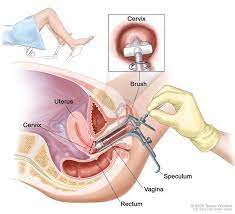
Pregnancy is a unique and transformative journey that typically lasts about 40 weeks, divided into three trimesters. During this time, a fertilized egg develops into a fully-formed baby.
It’s essential to schedule regular prenatal visits with a healthcare provider. These appointments monitor the baby’s growth, assess your health, and address any concerns.
Your doctor may recommend prenatal vitamins containing folic acid, iron, and other essential nutrients to support the baby’s development.
These can include blood tests, ultrasounds, and genetic screenings to check for potential birth defects or other complications.
Maintain a healthy lifestyle by eating well, staying hydrated, getting regular exercise (with your doctor’s approval), and avoiding harmful substances like alcohol, tobacco, and certain medications.
Consume a balanced diet rich in fruits, vegetables, whole grains, lean proteins, and dairy products. Ensure you’re getting enough folic acid, calcium, iron, and other essential nutrients.
Drink plenty of water to stay well-hydrated, especially as your blood volume increases during pregnancy.
Limit caffeine intake and avoid undercooked or raw seafood, unpasteurized dairy products, and certain high-mercury fish.
Take prenatal vitamins as prescribed by your healthcare provider to fill potential nutritional gaps.
Nausea and vomiting, often referred to as morning sickness, are common in the first trimester. Eating smaller, more frequent meals and ginger may help alleviate symptoms.
Some women develop gestational diabetes during pregnancy. It’s managed through diet, exercise, and sometimes medication.
Preterm labor can occur before the 37th week of pregnancy. Signs include contractions, back pain, and vaginal bleeding. Seek medical attention if you experience these symptoms.
This is a potentially serious condition characterized by high blood pressure and damage to organs like the liver and kidneys. Regular prenatal checkups help monitor for signs of preeclampsia.
Swelling in the legs and feet is common in late pregnancy. Elevating your legs, wearing compression stockings, and staying active can help reduce discomfort.
Remember that every pregnancy is different, and it’s crucial to communicate openly with your healthcare provider about any concerns or questions you have. They can provide personalized guidance and support throughout your pregnancy journey.
WhatsApp us